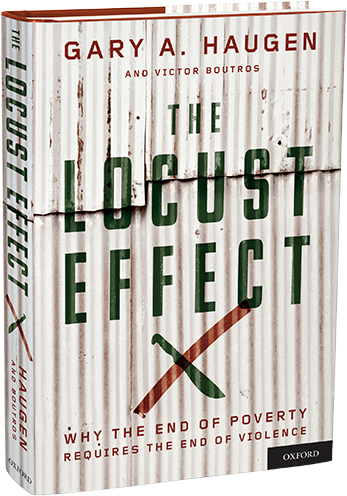The Center for Global Justice, Human Rights, and the Rule of Law, along with the International Law Society, had the pleasure of hosting Erin Clifford, the internship and fellowship director of International Justice Mission (IJM), on October 6, 2014. IJM is a great friend of the Center. Since 2012, four Regent students have interned with IJM, and beginning in 2014, the Center Student Staff has completed a number of legal projects for IJM involving police abuse of power and human trafficking.
IJM was established in 1997 for the purpose of seeking justice for the poor and oppressed. Since that time, IJM has gone into the darkest corners of the world to provide hope to victims. IJM has offices all over the world, including in Latin America, Africa, and Asia.
Most people are familiar with IJM’s work combatting human trafficking, but this is just one area in which IJM works. IJM also focuses its efforts on rescuing victims of forced labor, illegal detention, police brutality, violent sexual assault, and land grabbing.
 According to IJM and Erin Clifford, however, these categories of crimes are are not the problem. The specific crimes mentioned are simply symptoms of a bigger problem—violence against the poor. Through years of work and study, IJM has noticed a clear link between poverty and violence. Indeed, despite an increase in international aid in recent years, the number of those living on less than $2 a day has not changed at all. So where are the poor’s resources going? They are taken through violence. This is what IJM calls “everyday violence”—the “hidden plague” happening all over the world. This “hidden plague” is documented in a new book, The Locus Effect, co-authored by IJM’s founder, Gary Haugen.
According to IJM and Erin Clifford, however, these categories of crimes are are not the problem. The specific crimes mentioned are simply symptoms of a bigger problem—violence against the poor. Through years of work and study, IJM has noticed a clear link between poverty and violence. Indeed, despite an increase in international aid in recent years, the number of those living on less than $2 a day has not changed at all. So where are the poor’s resources going? They are taken through violence. This is what IJM calls “everyday violence”—the “hidden plague” happening all over the world. This “hidden plague” is documented in a new book, The Locus Effect, co-authored by IJM’s founder, Gary Haugen.
Erin explained that IJM’s casework focuses on different types of violence. The largest category is gender-based violence. In fact, approximately 1 in 5 women in the developing world will be a victim of rape or attempted rape. The second category is slavery or forced labor. In Southeast Asia, for example, people are forced to work in brick kilns or rice fields. At night, Erin explained, these victims are often placed in rooms that are locked from the outside. If anyone tries to escape, they are forcibly returned and their families are punished.
The third category of violence IJM fights is police abuse of power. In developing countries, the police are often detain people indefinitely without any evidence. Police succumb to the pressure of solving cases and arrest the poor to take the fall. Erin even noted that in some countries, victims of police abuse of power have been detained for up to 17 years without access to the courts.
Finally, IJM works to combat property grabbing, or the violent theft of land. According to Erin, the poor’s most precious possession is their land. It is where they grow their crops, raise their family, and receive sanctuary. Widows tend to be the most vulnerable victims of this crime because the cultures (not the laws) of many countries do not allow women to own property. After their husbands die, criminals force the widows off their property, leaving the widows with nothing.
Erin made clear that in all of the countries where IJM works to protect the poor from violence, the aforementioned categories of violence are illegal. So why, then, are the poor not receiving justice? If the law prohibits rape and theft of property, why do these things still regularly take place? Erin cited one reason: lack of the rule of law. Erin explained that the primary problem is not the laws on books, but the fact that the laws are not enforced. Indeed, “the reason violent people oppress the poor is because they can.”
Thus, in addition to rescuing victims, restoring survivors, and bringing criminals to justice, IJM also works to build the rule of law, what IJM calls “justice system transformation.” So how does IJM transform a justice system? It varies depending on the specific country, but justice system transformation often involves things like training law enforcement and political leaders, suggesting legislative changes, identifying honest law enforcement officials, consistently prosecuting cases, and creating additional levels of accountability and oversight for governmental entities.
After all of this, how do you know a justice system has been transformed? According to Erin, Cebu, Philippines provides the answer. IJM measured the availability of minors for commercial sex in Cebu before and after IJM began its work. The goal was a 20% reduction in the availability of minors after four years. What actually happened was an 80% reduction. IJM found that in just four years after its work had begun, law enforcement officials were investigating cases on their own, political leaders were more aware of the issues, and aftercare services had risen. Justice system transformed!
To listen to Erin’s talk, visit the following link:

No comments:
Post a Comment